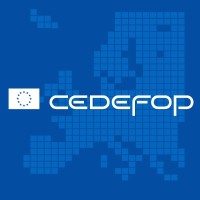
Cedefop
Cedefop, – the European Centre for Vocational Education and Training (VET) – is the EU Agency dedicated to VET, skills, learning, and qualifications. Our journey began in 1975 with a clear vision: to equip everyone in Europe with the skills needed to succeed in work and life. Today, that vision is more relevant than ever. As the world of work evolves rapidly, Cedefop’s mission remains steadfast: to make skills, learning, and opportunities accessible to every citizen and workplace. Cedefop delivers science-based insights to inform decisions and policies. We support policymakers to create more effective and responsive education and training systems. By analysing trends such as digitalisation, automation, and the green transition, Cedefop helps bridge skills gaps and prepares for the future of work. Our work ensures that lifelong learning and career guidance programmes are future-proof. We promote quality jobs for all, ensuring that VET leads to stable, rewarding careers with fair wages and growth opportunities. Cedefop champions lifelong learning, inclusion, and equality. We foster collaboration between workers and workplaces to remain responsive and competitive in a rapidly evolving economy. By advocating for inclusive VET policies, equal opportunities and support for underrepresented groups, we empower both youth and adult learners with skills for fulfilling careers. The urgency to upskill and reskill millions of people, promote VET among youth and adults, and enhance employability while closing Europe’s skills gap has never been more critical. It is key to ensuring growth, inclusion, and prosperity for all. The future of Europe depends on how we respond to the evolving #worldofwork. Working together with the EC, Member States, and social partners, we strengthen skills, quality jobs, and a future workforce where everyone has the opportunity to contribute and thrive. Join the #skillsrevolution #Cedefop50






